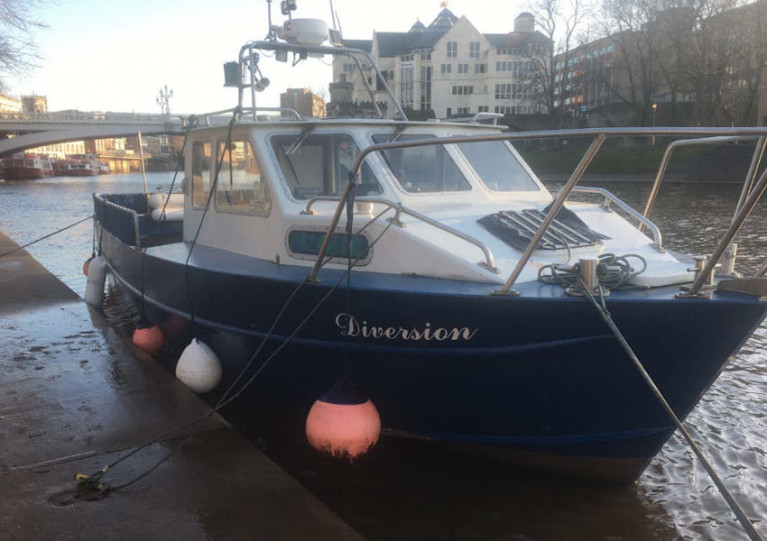Britain’s Marine Accident Investigation Branch (MAIB) has published a safety bulletin with lessons learnt from its initial findings into the death of two friends from carbon monoxide poisoning on a boat in York.
The boaters died in December 2019 when the improvised and mismatched cabin heater installation leaked exhaust gas, resulting in lethal amounts of toxic CO being pumped into the cabin near the steering position of their vessel, Diversion, on the River Ouse.
Leaking gas and the fact that there was no working carbon monoxide alarm aboard may have led to the poisoning of the men’s blood systems without them having any warning.
The UK’s Boat Safety Scheme is now urging boaters to read the new bulletin and adopt its safety advice immediately.
It joins the MIAB in asking boaters to install and maintain appropriate appliances safely, and have at least one suitable working carbon monoxide (CO) alarm properly installed aboard — preferably meeting safety standard EN 50291-2:2010.
Both organisations strongly recommend that any fuel-burning systems should also be checked routinely by competent engineers, at least annually, and any faults found addressed without delay.
Boats with permanent accommodation space on the UK’s waterways covered by the Boat Safety Scheme requirements must have at least one suitable carbon monoxide alarm installed.
“Carbon monoxide is a silent killer and staying alive can mean recognising any early signs of poisoning and knowing what to do if CO poisoning is suspected,” said BSS manager Kevin Tyson.
“It’s critical that boaters fully take on board the potential dangers of carbon monoxide. It cannot be seen, smelt, tasted, or felt and in high concentrations, CO can kill without warning, sometimes in only minutes.
“Even breathing-in lower levels of CO over a longer period, can have serious effects such as memory problems and difficulty concentrating,” he added.
Any carbon-fuel-burning appliance or engine can release carbon monoxide. Carbon fuels include but are not limited to diesel, petrol, gas, coal, wood and charcoal.































































